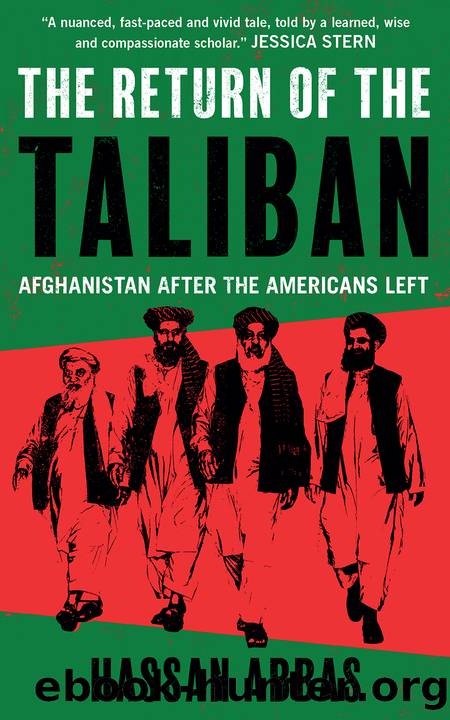The Return of the Taliban by Hassan Abbas

Author:Hassan Abbas
Language: eng
Format: epub
ISBN: 9780300271195
Publisher: Yale University Press
Sufism in Afghanistan
What compounds the tragedy of the Talibanâs mindset is just how vastly opposite it is to the legacy of faith so deeply embedded in the fabric of Afghanistan: a country and history soaked in the soft melodies of mysticism, and reverence for saints known for their gentleness. All this sacred space has been declared profane by the Taliban, who earlier tried to erase any trace of Afghanistanâs Sufis and sanctity. An iconic relic of these memories lies in Mazar-e-Sharif (the name literally translates as âtomb of the saintâ). In the center of this city lies a magnificent blue mosque supposedly housing the grave of Imam Ali ibn Abi Talib, the fourth caliph of Islam and a great Islamic hero. Although it is widely accepted that Ali is actually buried in Najaf, Iraq, for centuries Afghans have held this site as a beloved sanctuary and sacred landmark. Its turquoise hues are reminiscent of holiness and have always been a symbol of the tranquility that should come with faith. What is so significant about this place is that it is truly representative of the country in which it stands. Its serene landscape and devoted pilgrims carry a light with them that the Wahhabi-inspired elements including some Taliban desperately want to get rid of. This shrine is not just a special site for Shia Muslims though, it stands as a holy landmark for all Muslims. Another unique aspect of this being arguably the most significant shrine in Afghanistan is the relevance of Aliâs personality. Ali, the cousin and son-in-law of the Prophet, is remembered not only for being the original mystical master but also as a figure renowned for his religious wisdom, just governance, and tolerance in the face of authoritarianism. His life and perseverance were a testament to the ultimate victory of gentleness and knowledge over ignorance and power-obsession. The fact that this shrine associated with him stays standing today, after the destruction of so much around it, perhaps can be read as a sign of hope and optimism, that minds and hearts like his will experience victory once againâand it is they, not their opponents, who will be remembered gloriously in song and memory.
This is truly the mystic heartland: some of historyâs greatest Sufi saints originate from here, including the iconic poet Rumi. Entire Sufi orders have been born here, and the region carries in its soil the melodies of poetry and art lovingly crafted by such mystics. The very veins of Afghanistan are made up of such gentle, yet powerful, vibrations. Because of this, thereâs a rich legacy of Pashto poetry illuminating messages of tolerance and love that has now sadly not only been discarded but completely betrayed.16 Afghanistan, famously the land of poets, has now seen the Taliban utilize the countryâs beloved art of language to further their own cause. The medium has remained, but the message has been so drastically altered that it is now unrecognizable as such. While today people often heartbreakingly refer to Afghanistan
Download
This site does not store any files on its server. We only index and link to content provided by other sites. Please contact the content providers to delete copyright contents if any and email us, we'll remove relevant links or contents immediately.
| Central Asia | Southeast Asia |
| China | Hong Kong |
| India | Japan |
| Korea | Pakistan |
| Philippines | Russia |
The Rape of Nanking by Iris Chang(3526)
The Sympathizer by Viet Thanh Nguyen(3510)
World without end by Ken Follett(3010)
Ants Among Elephants by Sujatha Gidla(2928)
Blood and Sand by Alex Von Tunzelmann(2611)
Japanese Design by Patricia J. Graham(2562)
City of Djinns: a year in Delhi by William Dalrymple(2139)
Inglorious Empire by Shashi Tharoor(2103)
In Order to Live: A North Korean Girl's Journey to Freedom by Yeonmi Park(2062)
Foreign Devils on the Silk Road: The Search for the Lost Treasures of Central Asia by Peter Hopkirk(2059)
Tokyo by Rob Goss(2022)
India's biggest cover-up by Dhar Anuj(1989)
India's Ancient Past by R.S. Sharma(1988)
The Great Game: On Secret Service in High Asia by Peter Hopkirk(1962)
Tokyo Geek's Guide: Manga, Anime, Gaming, Cosplay, Toys, Idols & More - The Ultimate Guide to Japan's Otaku Culture by Simone Gianni(1949)
Goodbye Madame Butterfly(1938)
The Queen of Nothing by Holly Black(1760)
Living Silence in Burma by Christina Fink(1734)
Batik by Rudolf Smend(1724)
